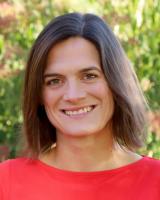Research Roundup | Jan. 20
Lincoln, Neb. —Welcome to the Research Roundup: a collection of highlights from the latest Husker research and creative activity.

Cover crop research project uses phenotyping to bolster data collection
In the winter, Nebraska cropland has a lot of untapped potential. Only about 4% of farming acres in Nebraska use cover crops, according to Katja Koehler-Cole, soil health management extension educator for the Eastern Nebraska Research, Extension and Education Center (ENREEC).
“There’s lot of possibilities, but not a lot is known about the different species you could use, or the differences in varieties of different species,” she said.
Read Cover crop research project uses phenotyping to bolster data collection
Imaging tool rapidly assesses seed quality
Lincoln, Neb. —Improving agriculture in a world that’s heating up and drying out isn’t solely about increasing yields. Nutritional quality is also crucial.
While measuring yield is as easy as weighing grain, what’s inside seeds is harder to discern.
To help improve the nutritional value of crops undergoing heat stress, Nebraska agronomist Harkamal Walia teamed with computer scientist Hongfeng Yu and his team.
Panhandle Perspectives: 2022 Nebraska dry edible bean trial results on CropWatch website
Lincoln, Neb. —Results of the 2022 variety trials for dry edible beans conducted by the University of Nebraska Panhandle Research and Extension Center have been posted on the Nebraska Extension CropWatch website.
Read Panhandle Perspectives: 2022 Nebraska dry edible bean trial results on CropWatch website
Innovative bovine-herd research boosts understanding of female infertility
Lincoln, Neb. —Innovative research by University of Nebraska–Lincoln scientists studying the reproductive biology of cows offers significant long-term potential to address infertility challenges for women.
Read Innovative bovine-herd research boosts understanding of female infertility
TAPS banquet to celebrate 2022 competitions
Lincoln, Neb. —Amid the drought that plagued much of Nebraska in 2022, competitors in the Testing Ag Performance Solutions (TAPS) program made management decisions striving for efficiency and profitability. The sixth annual awards banquet will showcase how participants managed their plots and compared to others in the competitions.
Rust-coated irrigation pipes hint at lack of nitrate in groundwater
Lincoln, Neb. —Oh, we don’t have to worry about that area. They have red pivots.
Read Rust-coated irrigation pipes hint at lack of nitrate in groundwater
Gone with the wind? Huskers investigate mystery of last standing grain bin
Lincoln, Neb. —Welcome to Pocket Science: a glimpse at recent research from Husker scientists and engineers. For those who want to quickly learn the “What,” “So what” and “Now what” of Husker research.
Read Gone with the wind? Huskers investigate mystery of last standing grain bin
Q&A: Gardner discusses new book on parasites
Lincoln, Neb. —As it did so many others, the onset of COVID-19 upset the best-laid plans of Nebraska U’s Scott Gardner and Judy Diamond.
Team IDs invasive tree dispersal patterns on Great Plains prairies
Lincoln, Neb. —Welcome to Pocket Science: a glimpse at recent research from Husker scientists and engineers. For those who want to quickly learn the “What,” “So what” and “Now what” of Husker research.
Read Team IDs invasive tree dispersal patterns on Great Plains prairies








